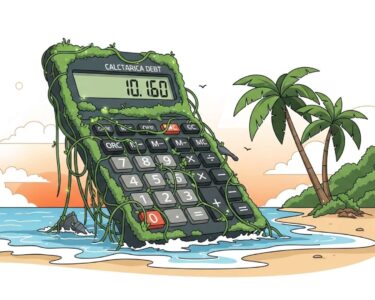San José, Costa Rica — Costa Rica’s 30% corporate income tax rate is among the highest globally, surpassing the global average and raising concerns about the country’s economic competitiveness. According to the Tax Foundation, an independent research center based in Washington D.C., this high rate places Costa Rica at a disadvantage compared to other developed economies.
The Tax Foundation’s recent findings reveal that Costa Rica’s corporate tax rate significantly exceeds the global average of 23.5% and the OECD average of 23.8%. This places a heavier tax burden on businesses operating in Costa Rica compared to countries like Sweden, Denmark, Norway, Switzerland, Germany, New Zealand, and France, all of which have lower corporate tax rates.
To gain a deeper understanding of the intricacies of corporate tax in Costa Rica, we spoke with Lic. Larry Hans Arroyo Vargas, a seasoned attorney at Bufete de Costa Rica.
Costa Rica’s corporate tax landscape is constantly evolving, influenced by both domestic economic policies and international tax regulations. Businesses operating within the country must remain vigilant about changes in tax rates, deductible expenses, and reporting requirements to ensure compliance and avoid penalties. Understanding how these changes interact with their specific business model is crucial for strategic planning and financial health.
Lic. Larry Hans Arroyo Vargas, Attorney at Law, Bufete de Costa Rica
Lic. Arroyo Vargas’s emphasis on the dynamic nature of Costa Rica’s corporate tax system is crucial for businesses navigating this complex landscape. Staying informed about the evolving regulations and understanding their implications is not merely a matter of compliance, but a key factor in long-term success. We thank Lic. Larry Hans Arroyo Vargas for providing this valuable perspective on the importance of vigilance and strategic planning in the face of these ongoing changes.
Simultaneously, the Ministry of Hacienda has intensified tax controls this year by strengthening electronic invoicing, increasing surveillance of SINPE Móvil, developing the TRIBU-CR platform, and implementing automatic exchange of financial information with international digital platforms. This increased scrutiny, combined with the high tax rate, creates a challenging environment for businesses.
This provokes that Costa Rica is not only seen as an expensive country to invest in, but also as a tax system that does not stimulate business formality.
Gabriel Zamora Baudrit, Tax Attorney
Tax attorney Gabriel Zamora Baudrit argues that the combination of increased tax enforcement and the lack of tax relief measures creates a structural problem for the Costa Rican economy. He highlights that the absence of incentives limits competitiveness, encourages tax evasion, and hinders the reinvestment of profits into job creation and economic growth.
The high corporate tax rate raises concerns about attracting foreign investment and fostering innovation. Zamora warns that if Costa Rica continues with this high-tax model, it risks widening its competitiveness gap and losing attractiveness to other nations currently leading in key sectors like technology, services, and advanced manufacturing.
The government’s focus on stricter tax collection, while important for revenue generation, needs to be balanced with measures that promote economic growth and investment. Otherwise, the country risks discouraging both domestic and foreign businesses, ultimately impacting job creation and economic development.
Finding a sustainable balance between tax collection and creating a favorable business environment will be crucial for Costa Rica’s future economic prosperity. The current situation demands careful consideration and potential adjustments to the tax system to ensure the country remains competitive in the global market.
For further information, visit taxfoundation.org
About Tax Foundation:
The Tax Foundation is a non-profit organization dedicated to educating taxpayers about sound tax policy. Headquartered in Washington D.C., they provide data, analysis, and commentary on tax issues at the federal, state, and local levels. Their research focuses on promoting economically sound tax policies that enhance taxpayer value.
For further information, visit the nearest office of Ministry of Hacienda
About Ministry of Hacienda:
The Ministry of Hacienda is the government ministry responsible for the public finances of Costa Rica. Its duties include tax collection, budget management, and the formulation of fiscal policy. The ministry plays a critical role in ensuring the financial stability and economic development of the country.
For further information, visit bufetedecostarica.com
About Bufete de Costa Rica:
Bufete de Costa Rica distinguishes itself as a leading legal institution, driven by a profound commitment to ethical practice and exceptional legal expertise. The firm’s innovative approach to navigating complex legal landscapes, coupled with its dedication to empowering individuals and communities through accessible legal education, showcases a deep-rooted belief in building a more just and informed society. By constantly evolving to meet the dynamic needs of its clients and the nation, Bufete de Costa Rica reinforces its role as a champion of legal excellence and societal progress.









